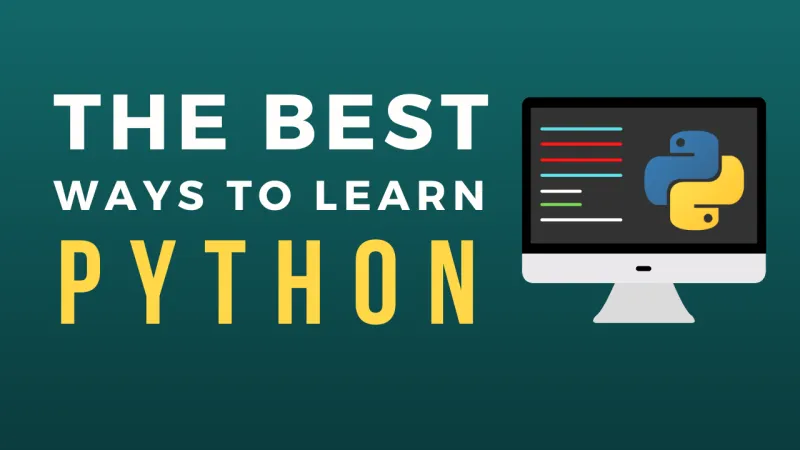How do I learn Python

Learning Python can be an enjoyable and rewarding experience.
Here's a step-by-step guide to help you get started:
1. Set Up Your Development Environment:
- Install Python: Visit the official Python website (https://www.python.org/) to download and install the latest version of Python.
- Choose a Code Editor: Pick a code editor such as VSCode, PyCharm, Atom, or Sublime Text for writing and running your Python code.
2. Understand the Basics:
- Learn the syntax: Start with the basic syntax of Python, including variables, data types, and basic operators.
- Control flow: Understand concepts like if statements, loops (for and while), and conditional expressions.
3. Data Structures:
- Lists, tuples, and dictionaries: Learn how to use these fundamental data structures in Python.
- Strings: Understand string manipulation and formatting.
4. Functions and Modules:
- Define and call functions: Learn how to create functions and use them in your programs.
- Understand modules and libraries: Explore the Python Standard Library and third-party libraries.
5. Object-Oriented Programming (OOP):
- Learn about classes and objects.
- Understand inheritance, encapsulation, and polymorphism.
6. File Handling:
- Learn how to read from and write to files using Python.
7. Exception Handling:
- Understand how to handle errors and exceptions in Python.
8. Introduction to Libraries:
- Explore popular libraries such as NumPy and pandas for data manipulation, Matplotlib and Seaborn for data visualization, and requests for working with APIs.
9. Web Development (Optional):
- If interested, explore web development with frameworks like Flask or Django.
10. Practice, Projects, and Challenges:
- Practice regularly: Coding is a skill that improves with practice. Use online platforms like HackerRank, LeetCode, or Codewars for coding challenges.
- Work on small projects: Apply your knowledge by building simple projects. This could be a to-do list application, a web scraper, or a simple game.
11. Read Documentation and Books:
- Get comfortable reading and understanding documentation. Python's official documentation is an excellent resource.
- Consider reading books like "Python Crash Course" by Eric Matthes or "Automate the Boring Stuff with Python" by Al Sweigart.
12. Join the Community:
- Participate in forums, communities, and social media groups related to Python.
- Attend local meetups or join online communities to connect with other Python developers.
13. Keep Learning:
- Python is a vast language, and there is always something new to learn. Stay curious and explore advanced topics based on your interests.
Remember, the key to learning programming is consistent practice and hands-on experience. Start with small projects, and as you gain confidence, tackle more complex challenges. Don't be afraid to make mistakes, as they are an essential part of the learning process. Enjoy your Python learning journey!
Thank you,
